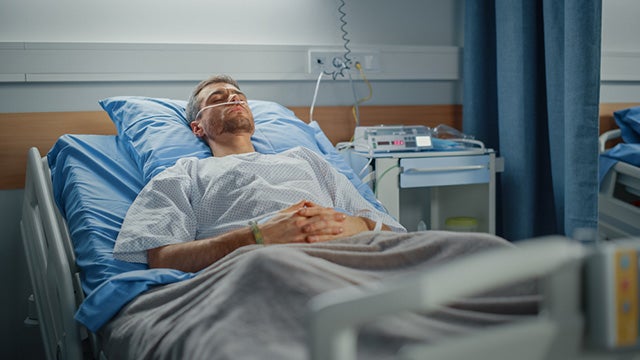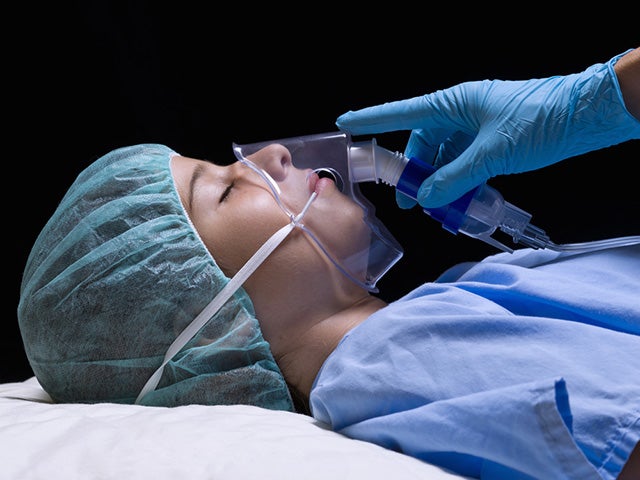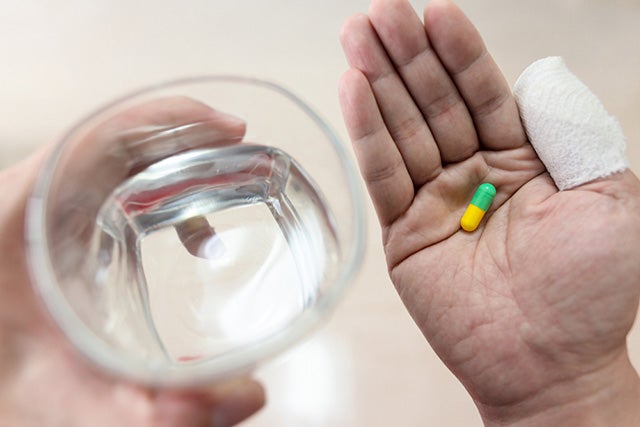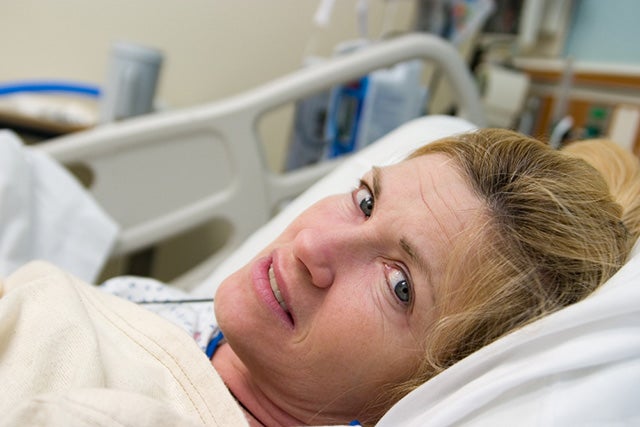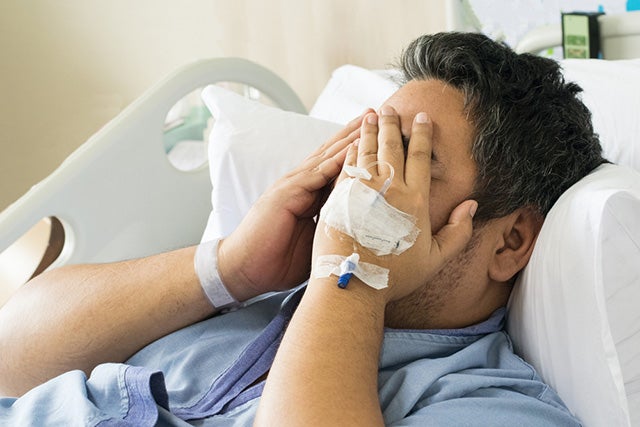Many people struggle to get adequate sleep in the days following surgery.
Whether plagued by the side effects of anesthesia or harrowed by the unfamiliar—and noisy—hospital environment, sleep troubles are a normal occurrence in this situation. However, this lack of sleep can slow down the healing process and even result in the worsening of post-surgery symptoms.
There are several factors that can contribute to poor sleep following surgery, and it’s essential to pinpoint your triggers so you can get better shut-eye.
Following is a guide to the most common causes of post-surgery sleeplessness and some tips on how to sleep after surgery for the best results.
Anesthesia
When you go in for surgery, you’ll likely receive some sort of anesthesia. You can expect:
- local anesthesia for minor surgeries
- regional anesthesia for larger surgeries
- general anesthesia for major surgeries.
Of these, general anesthesia tends to be the most invasive in terms of sleep quality. While local and regional anesthesia numb a specific part or portion of the body, general anesthesia induces sleep and consequently messes with your body’s natural circadian rhythm.
These effects are even more pronounced when you’re taking medication or using sleeping pills. Medications and supplements cause changes in your body (such as altered blood pressure), which can compound the residual effects of the anesthesia to worsen symptoms or further throw your circadian rhythm off balance.
While there’s little you can do to prevent the negative effects of anesthesia on your sleep, it’s good to be mindful of which medications you’re taking (both prior to surgery and after). If a med isn’t working for you, talk with your doctor about it.
Environment
Hospitals are a great place to find help, get treated, and heal. But they’re not a great place to sleep.
If your surgery requires you to spend a few nights in the hospital, the first thing you should do is research what to expect and how to prepare. Depending on your operation, you might need to be given medication at specific times or have tests run in the middle of the night—both of which can negatively affect your sleep quality.
Sleeping in an unfamiliar location can be stressful and make it more difficult to fall or stay asleep when you’re in pain. If possible, it may help to bring some things from home with you: a favorite pillow, a warm blanket, a stuffed animal, or even a book you’re currently reading.
In addition, you should prepare for excess noise (machines beeping, footsteps outside your room, etc.) as well as excess light. Some people find that wearing earplugs or a sleep mask is helpful.
Medication
As mentioned earlier, taking medication after surgery can impact your sleep for the worst. It’s a good idea to communicate with your doctor and other care providers about which medications you’re taking now, which ones you’ll need to take following the surgery, and how they might affect you.
Painkillers such as morphine, opioids, and steroids are likely to cause issues in your sleep patterns. If possible, opt for less disruptive meds; Sleep.org mentions acetaminophen and ibuprofen as good alternatives.
Pain
It can be a pain getting to sleep when you’re…in pain.
While medications may help with the bulk of this unfortunate post-surgery symptom, you’ll still experience some pain and discomfort in the days following surgery. In addition to taking prescribed medication, there are several ways you can help alleviate your discomfort:
- Using supportive pillows
- Applying a warm compress to the painful area
- Taking a warm shower or bath
- Engaging in physical therapy
You might be sore and uncomfortable for a few days or weeks post-surgery, but this symptom shouldn’t last too long!
Stress
Perhaps the biggest detriment to getting quality sleep after surgery is the stress involved.
The initial stress of receiving a diagnosis and undergoing the surgery combine with the added stressors that follow: time spent in an unfamiliar place, the constant check-ups from doctors and nurses, family visits, and the sense of having your schedule thrown off.
When you’re stressed, your body produces more cortisol (a.k.a. “the stress hormone”) which raises your blood sugar, increases your heart rate, and makes you feel more on edge. As you can imagine, this makes it difficult to sleep well—if at all—and it can also interfere with your sleep-wake cycle.
You can relieve stress through a variety of means:
- Deep breathing
- Muscle relaxation
- Relaxing activities
- Calming music or sounds
- A warm bath or shower
- Medications
- Aromatherapy
Bonus: More Tips for Better Sleep
There are plenty of things that can make it difficult to sleep after surgery, but most of them can be counteracted. In addition to the specific tips mentioned in this article, it’s important that you practice good sleep hygiene in general. This includes:
- Setting a consistent bedtime and wake up time
- Limiting your consumption of caffeine, alcohol, and nicotine
- Avoiding exposure to blue light before bedtime (such as the TV or your phone screen)
- Doing a relaxing but engaging activity (such as reading) before bed
- Keeping naps short (under 15 minutes) or not napping at all
- Eating smaller meals near bedtime and limiting late-night snack consumption
- Taking supplements such as melatonin
If you follow these tips, you’re far more likely to get quality sleep both after surgery and for the rest of your life.
The Bottom Line
It’s common for people who have recently had surgery to struggle falling or staying asleep. Anything from the side effects of anesthesia to the stress of family visits can make getting quality sleep a real struggle.
However, once you figure out why you can’t sleep, you can start working with your doctor and/or loved ones to make your environment more suitable for sleeping.
Have you or a loved one ever struggled with sleeplessness following an operation? Share you story with us and feel free to leave any tips you’ve learned from experience!
Photo credit: By Gorodenkoff/Shutterstock; Fresnel/Shutterstock;
wavebreakmedia/Shutterstock; CGN089/Shutterstock;
Ken Hurst/Shutterstock; Unchalee Khun/Shutterstock
